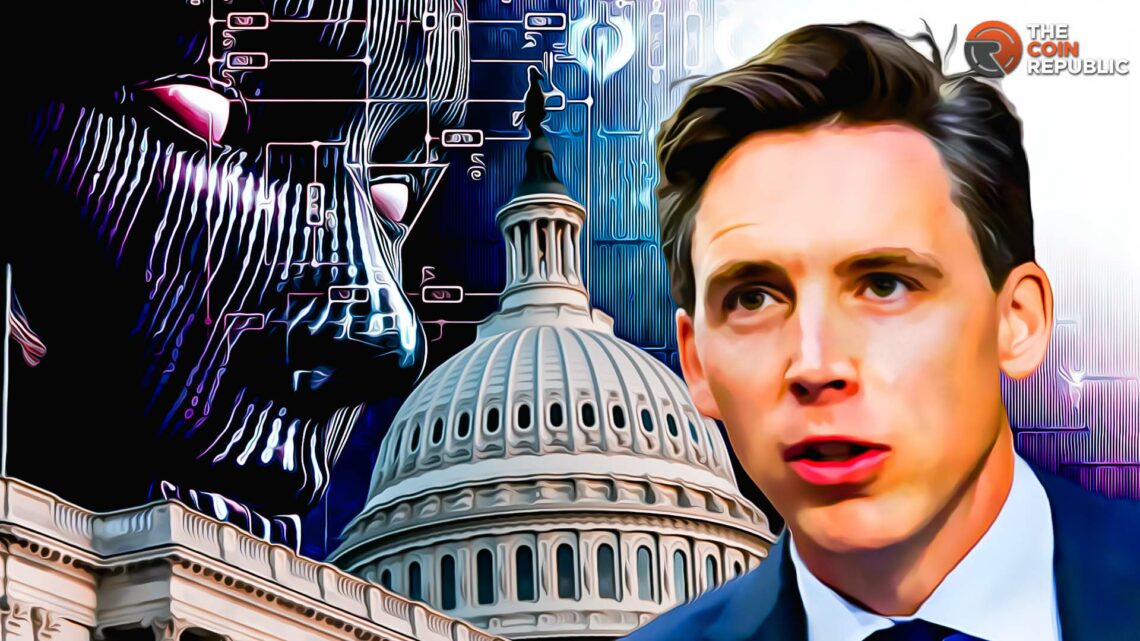Artificial intelligence (AI) is moving at a pace where many companies across sectors are seeking to deploy cutting-edge technology. The potential impact of AI on day-to-day human lives is also becoming a concern. No wonder lawmakers have also started preparing to deal with the possible issues and threats. A recently proposed bill seeks to keep AI away from Section 230 of the CDA.
The United States Senators from both the Republican and Democratic parties brought the proposal together. The bill will ensure AI companies are eliminated from the Communications Decency Act of 1996 (CDA). Republican Sen. Josh Hawley and Democrat Sen. Richard Blumenthal introduced the bipartisan bill in the Senate on Wednesday, June 14.
Today @SenBlumenthal and I introduce the first bipartisan AI bill – putting power in the hands of consumers to sue when AI harms them. It’s landmark protection for Americans, and more to come https://t.co/10rJOr5IP3
— Josh Hawley (@HawleyMO) June 14, 2023
Section 230 of the CDA acts as a protective law which prevents service providers from the efficacies or the outcomes of users’ posted content. Online service provider platforms get immune from the indictment of illegal content, although the platform could be made to remove such content if found to be illicit or violating some guidelines.
Suitable for the Internet, Not for AI
Many believe Section 230 is responsible for facilitating an environment suitable for the Internet, and then for social media to develop and flourish. However, the counter-argument stated the same law is behind the social media companies’ misuse of liberty and the harmful and threatening content on the web.
The bill dubbed “No Section 230 Immunity for AI Act” would add a clause in Section 230 seeking its amendment. It would eliminate the immunity of protection under this law from AI companies. This would make these entities liable to civil claims and criminal charges if the generative AI produces such content.
In a nutshell, the developer company will have to face the charges if its generative AI platform makes the claim or provides information which offends the users. People, then will have the authority and right to file lawsuits against such companies in the federal or state court.
Concerns Around Innovation and Development
Meanwhile, experts from the legal landscape found the bill a threat to innovation and development in technology. They argue generative AI is currently covered under Section 230, and if the protection would be denied to the developers, it would expose them to legal threats. It will burden them with lawsuits and deter their focus from innovation to think of creating less harmful products.
On the other hand, people tend to believe AI is not under protection since the courts would consider ChatGPT-like large language models (LLM) as “information content providers.”
Lawmakers around the world are talking about the concerns with AI and are taking steps forward for its regulation and control. Earlier, the US Senators were seeking transparency and innovation through another proposed bipartisan bill.

With a background in journalism, Ritika Sharma has worked with many reputed media firms focusing on general news such as politics and crime. She joined The Coin Republic as a reporter for crypto, and found a great passion for cryptocurrency, Web3, NFTs and other digital assets. She spends a lot of time researching and delving deeper into these concepts around the clock, and is a strong advocate for women in STEM.


 Home
Home News
News







